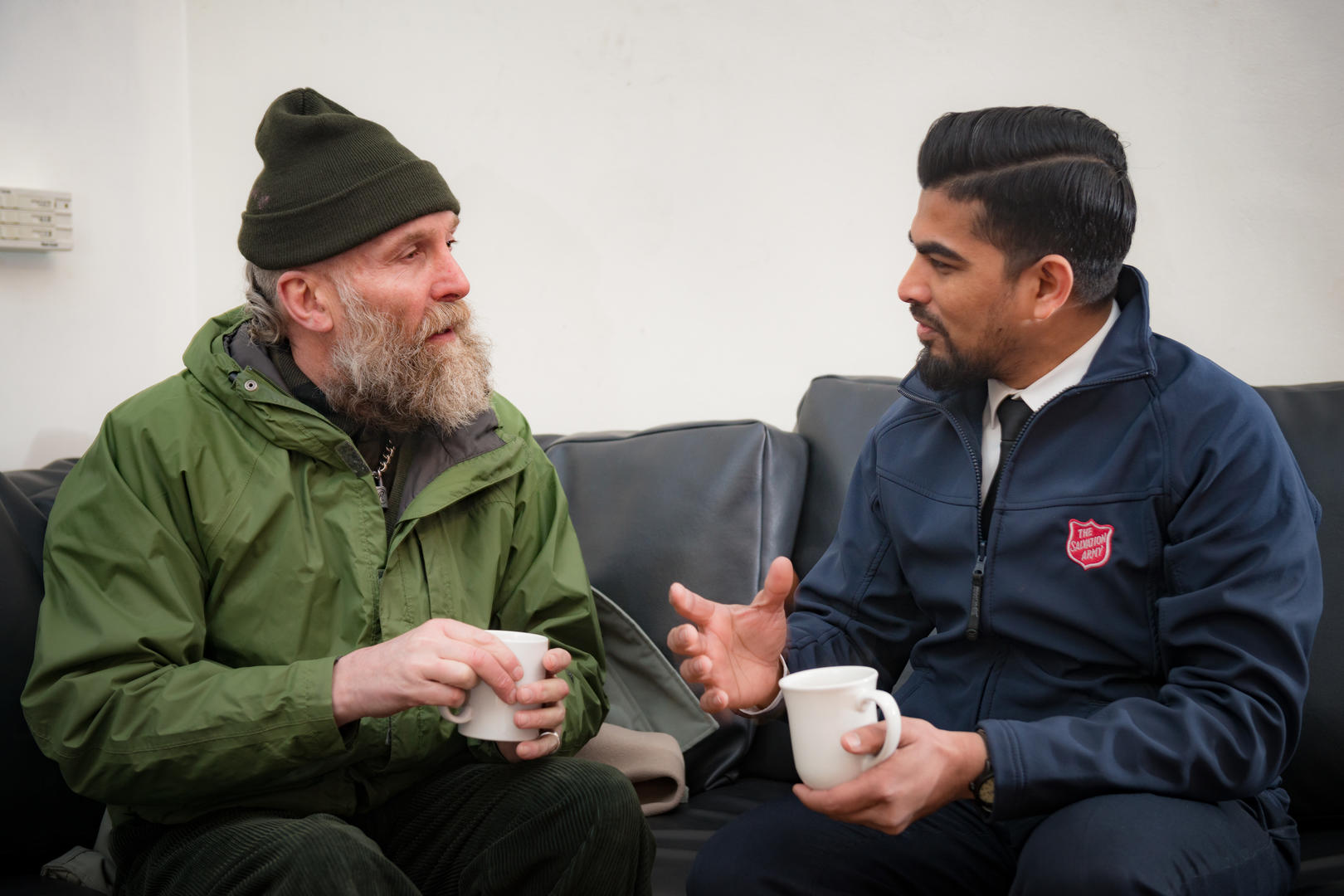Drop in London rough sleepers could be calm before storm
published on 30 Jul 2021
The Salvation Army is warning the perfect storm of covid support measures ending in the Autumn could see rough sleeping skyrocket, even though figures showed a drop in rough sleeping in the capital.
The Combined Homelessness and Information Network (CHAIN) quarterly report released today[1] shows that a total of 1,177 people were new rough sleepers – 45% of the total number (2,589) of people sleeping rough in the capital between April and June 2021.
This is a drop of 56% in new rough sleepers compared with the same period last year. However, The Salvation Army believes the underlying trend is for figures to rise after COVID-19 support measures like furlough end in the autumn, which could cause a rise in unemployment and home repossessions.
Hilarie Watchorn, The Salvation Army's Assistant Director of Homelessness Services, said: “While it is encouraging that there has been a drop in London rough sleepers we are concerned that there are still many new rough sleepers ending up on the streets. The Salvation Army is very worried that the numbers of people forced to sleep rough may start to spiral as emergency pandemic support ends.
“The Government has made a good start by investing over £3 million to help people transition from the ‘Everyone In’ [2] emergency accommodation scheme to stable accommodation but there is an urgent need for more investment.
“If the Government is to meet its commitment to put an end to homelessness by the end of this Parliament it must invest in services to help people tackle the reasons they have been made homeless in the first place which can include unemployment, poor physical or mental health and addiction.
“Thousands were protected from homelessness during the pandemic thanks to schemes like ‘Everyone in’, furlough and eviction protection. However, many of these same people still need help now this safety net is being removed.
“As well as this, when we head into winter, many night shelters will still be unable to operate due to needing to provide single rooms to help stop the spread of COVID.”
The Salvation Army is calling for the Government to act immediately to help prevent more people becoming homeless and provide accommodation combined with specialist support to help tackle the reasons people end up on the streets.
In particular the church and charity is calling for:
- The availability of stable long-term shelter for those who were helped last year as part of ‘Everyone In’
- Housing to include access to support for those with a complex history of rough sleeping to help them address issues such as poor mental health or addiction.
- Sustainable funding; if rough sleeping numbers are increasing then funding for rough sleeping cannot decrease. This will also help local authorities plan the right level of local need.
The London CHAIN figures are the only quarterly produced data in England that measure rough sleeping. One of the key asks by The Salvation Army is for robust official recording methods for rough sleeper numbers across the country so that support services can be properly planned and sufficiently funded.
- Rough Sleeping in London (CHAIN reports) https://data.london.gov.uk/dataset/chain-reports
- The Government's ‘Everyone In’ policy instructed local authorities to ensure thousands of rough sleepers were housed during the first lockdown of 2020 and beyond through a co-ordinated effort between local authorities, charities, and other agencies and organisations.
